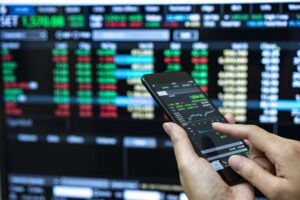 Most forex traders fail due to a combination of factors related to psychology, strategy, risk management, and market conditions. While there is no single reason for failure, here are some of the most common reasons why the majority of forex traders don’t succeed in the long term:
Most forex traders fail due to a combination of factors related to psychology, strategy, risk management, and market conditions. While there is no single reason for failure, here are some of the most common reasons why the majority of forex traders don’t succeed in the long term:
1. Lack of a Solid Trading Plan
- Impulsive Trading: Many traders jump into the market without a clear plan, trading based on emotions or short-term market moves. Without a well-defined strategy, such as when to enter and exit trades, many traders end up making decisions driven by fear or greed rather than logic.
- No Clear Goals: Successful traders set clear, measurable goals and have a trading plan that matches their risk tolerance, objectives, and time commitment. A lack of this planning leads to inconsistency.
2. Overleveraging
- Risk of Ruin: Forex markets allow traders to use high leverage, meaning they can control large positions with a relatively small amount of capital. Many traders, especially beginners, use excessive leverage in an attempt to amplify their profits. However, this magnifies losses just as much, and traders can quickly wipe out their account with a single bad trade.
- Lack of Risk Management: Risk management involves setting stop losses, position sizing, and ensuring that no single trade puts the entire account at risk. Without effective risk management, traders expose themselves to significant losses.
3. Emotional Trading
- Fear and Greed: Forex trading can trigger strong emotions, especially in volatile markets. Fear of losing money or greed to make a quick profit can cloud judgment and lead to poor decision-making. Traders often deviate from their strategies when they act impulsively based on emotional reactions.
- Chasing Losses: Some traders fall into the trap of “revenge trading,” trying to recover losses by increasing position sizes or taking on riskier trades. This emotional approach often leads to further losses.
4. Lack of Patience
- Overtrading: Forex traders, especially beginners, often feel the need to trade constantly, thinking that they need to be in the market at all times to make profits. This can lead to poor decisions and unnecessary risks. Good traders understand that sometimes the best course of action is to wait for high-probability setups.
- Failure to Wait for the Right Conditions: Successful forex trading is about timing. Traders who lack patience often jump into trades without waiting for favorable conditions or confirmation, leading to losses.
5. Inadequate Knowledge and Education
- Unrealistic Expectations: Many new traders enter the forex market thinking they can quickly get rich, leading to poor decision-making and high risk-taking. The reality is that trading requires continuous learning, discipline, and long-term commitment to be successful.
- Overconfidence: Some traders may believe they know it all after reading a few books or taking a short course. However, forex markets are complex, and even seasoned traders must adapt to changing market conditions and learn from their mistakes.
6. Failure to Adapt to Market Conditions
- Market Volatility: The forex market is volatile and influenced by a variety of factors, including economic data, geopolitical events, and central bank policies. Traders who fail to stay informed about market conditions or don’t adjust their strategies to changing environments may struggle.
- Overreliance on Indicators: Some traders rely too heavily on technical indicators or trading systems without considering the broader market context. While technical analysis is useful, it’s important to combine it with fundamental analysis and an understanding of the market’s overall behavior.
7. Not Managing Risk Properly
- Lack of Stop Losses: Many traders fail to use stop-loss orders, or they set them too far away from their entry point. Without stop losses, losses can quickly escalate, and traders are unable to control their risk exposure.
- Risk-to-Reward Ratio: Successful traders focus on achieving a favorable risk-to-reward ratio. For example, they aim to risk $1 to make $2 or more. Failing to maintain a proper risk-to-reward ratio means that traders need to win more than they lose to break even or make a profit.
8. Poor Money Management
- Position Sizing: Trading without appropriate position sizing can be a major contributor to failure. Many traders risk too much of their capital on a single trade, leading to large losses that are difficult to recover from.
- Chasing After More Profits: Greed can lead traders to increase their position sizes without considering their risk tolerance. They may risk too much capital on trades in an attempt to achieve larger profits, leading to bigger drawdowns and eventual account blowouts.
9. Lack of Discipline
- Ignoring Trading Rules: Successful traders stick to their plans, even when tempted by external factors or short-term market moves. Lack of discipline leads to emotional decisions, inconsistent results, and eventual failure.
- Failure to Learn from Mistakes: A lack of reflection and learning from past trades is another reason why many traders fail. Traders who don’t analyze their mistakes and adjust their approach are doomed to repeat them.
10. Overconfidence and Lack of Adaptation
- Ignoring Market Risks: Overconfidence often leads traders to take excessive risks without fully understanding the potential consequences. Traders who fail to continuously adapt to new market trends or ignore potential risks can see their accounts erode quickly.
- Sticking to One Strategy: Some traders fail because they don’t adapt their strategies to different market conditions. A strategy that worked in a trending market may not work in a range-bound or volatile market. Flexibility and adaptation are key.
